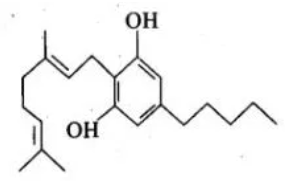NCERT Solutions for Chapter: Human Health and Diseases, Exercise 3: SHORT ANSWER TYPE QUESTIONS
NCERT Biology Solutions for Exercise - NCERT Solutions for Chapter: Human Health and Diseases, Exercise 3: SHORT ANSWER TYPE QUESTIONS
Attempt the practice questions on Chapter 8: Human Health and Diseases, Exercise 3: SHORT ANSWER TYPE QUESTIONS with hints and solutions to strengthen your understanding. NCERT Exemplar Biology - Class 12 solutions are prepared by Experienced Embibe Experts.
Questions from NCERT Solutions for Chapter: Human Health and Diseases, Exercise 3: SHORT ANSWER TYPE QUESTIONS with Hints & Solutions
The outline structure of a drug is given below.

Which group of drugs does this represent, whether cannabinoid or opium?
In the metropolitan cities of India, many children are suffering from allergy/asthma. What are the main causes of this problem? Give some symptoms of allergic reactions.
What is the basic principle of vaccination? How do vaccines prevent microbial infections? Name the organism from which hepatitis B vaccine is produced.
What is cancer? How is a cancer cell different from the normal cell? How do normal cells attain cancerous nature?
A person shows strong unusual hypersensitive reactions when exposed to certain substances present in the air. Identify the condition. Name the cells responsible for such reactions. What precaution should be taken to avoid such reactions?
For an organ transplant, it is an advantage to have an identical twin. Why?
What are lifestyle diseases? How are they caused? Name any two such diseases.
If there are two pathogenic viruses, one with DNA and other with RNA, which would mutate faster? And why?
